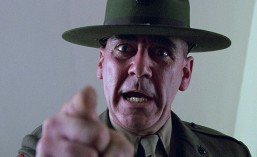Some would argue that directing is one of the most important roles in the making of a film. Ultimately it’s up for debate due to the fact that certain producers and production companies end up running the directors and the writers as they wish. Companies like Disney are used as examples of production taking over a projects. Just look at the amount of good directors that have left marvel projects in the last few years due to “creative differences.”
However, despite what production companies do or do not, it’s hard not to argue that directors are ultimately the reason films are good or not good. After all, directors are the ones that yell “action” and “cut” between each scene you watch.
A director, just like a producer, can choose what to intervene in, what to be a part of, and what to let happen.Ultimately, there are directors so great that their mere name brings up the thought of a great film. So what makes these individuals so great? What makes them stand out from the others who have been working as much as they have?
 And what exactly makes them great directors?Using clips, quotes, and known facts about some of the most well known directors in film today, I’ll explain exactly what makes them so “great.”
And what exactly makes them great directors?Using clips, quotes, and known facts about some of the most well known directors in film today, I’ll explain exactly what makes them so “great.”
Source: What Makes a Great Director – 24 Masterpieces Per Second

I never understand why writers don’t get more recognition in movies. They do for TV shows, yet not movies.
I don’t know much about the technicalities of film making but I love directors who make their OWN movies. Quentin Tarantino, Ben Wheatley, even Christopher Nolan is a good example. Directors who create their film from the story to the direction. Rather than a lot of directors who just get handed out scripts pre-written and that’s how they work.
LikeLiked by 3 people
The best way to put it is this: when you’re reading a book, you always have a vision for the story in your head, right? After all the reason books are often “better then movies” to a viewer who watched an adaptation is because you imagine a book in your head a certain way which makes perfect sense to you while you’re reading, and nothing beats out your own imagination and vision of something (unless you have a horrible imagination). Hence when you think of film which is a visual medium you’re never seeing the writer’s script, but rather the directors interpretation of that script. This is why I think film directors get that credit.
For TV shows, a visual style is set from the beginning. The directors cannot change the visual style to their liking like they would be able to in a film, despite the show having several directors. There’s not much room for interpretation other then the writers vision in tv shows, and so the writers get to have more credit. At least that’s what I think.
LikeLiked by 2 people
I know what you mean but I still think the writer comes up with the actual ‘story’ and that is always going to be the most important part of the film. Without a story, there’s nothing. The director may bring it to life on the screen, but they deserve equal credit at least. Thanks for your comment, some really well thought out ideas and I do know where you’re coming from! Food for thought 🙂
LikeLiked by 2 people
Who is that ?
Oh he’s nobody, just the writer
Roughly remembered from From Shakespeare in Love
LikeLike
If you look at the truly ‘great’ directors they make the whole movie. the script, the direction, the score they have control of everything from beginning to end and nearly always these are the movies that last longer than just the opening weekend in our memories
LikeLiked by 1 person
Martin Scorsese and Akira Kurosawa are examples of great directors who didn’t always write their own films. In fact, I would argue that taking someone else’s writing and making it into one’s own film is more of a feat then interpreting one’s own ideas which are already fully shaped.
LikeLiked by 1 person
I initially though this was about Orson Welles!!! Nice little write-up though. I agree Directors make the movie!!! It’s their responsibility!!
Thanks for sending me an FB request. Have accepted it!
LikeLiked by 1 person
Thanks for re-posting a piece from my blog!
LikeLiked by 1 person
Thanks Burto, yes you are of course correct, it is not always the case that the director is in control of ‘everything’ including the writing, and the examples you give are fine ones, I still think the more immersed in the total process the director is the better the end result, of course there are exceptions to that rule also, like all the great works of ‘Alan Smithee’
LikeLike